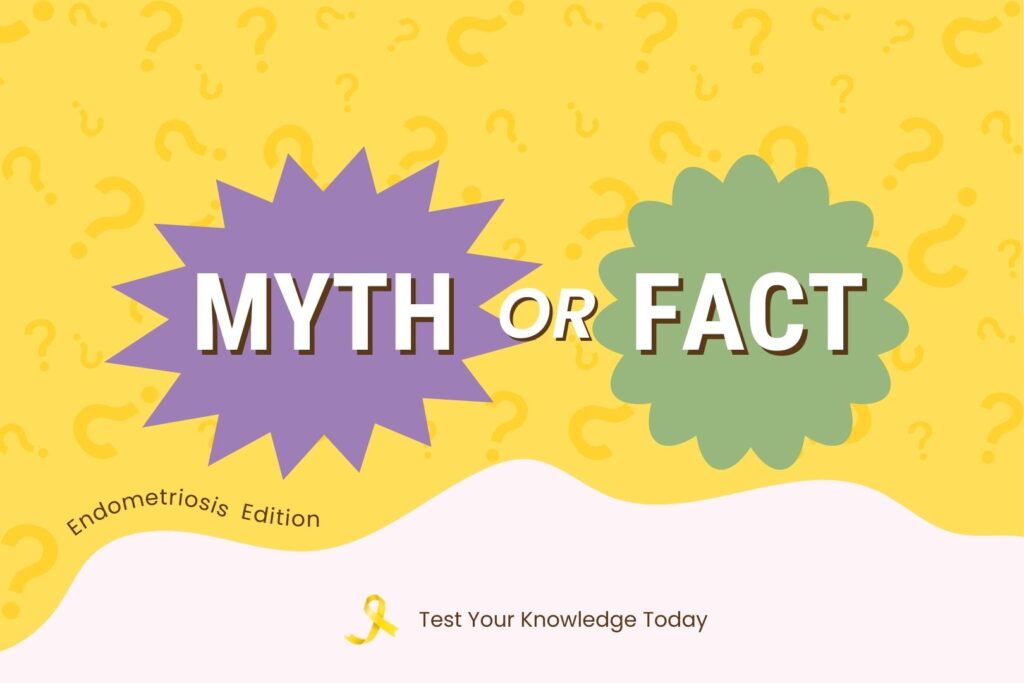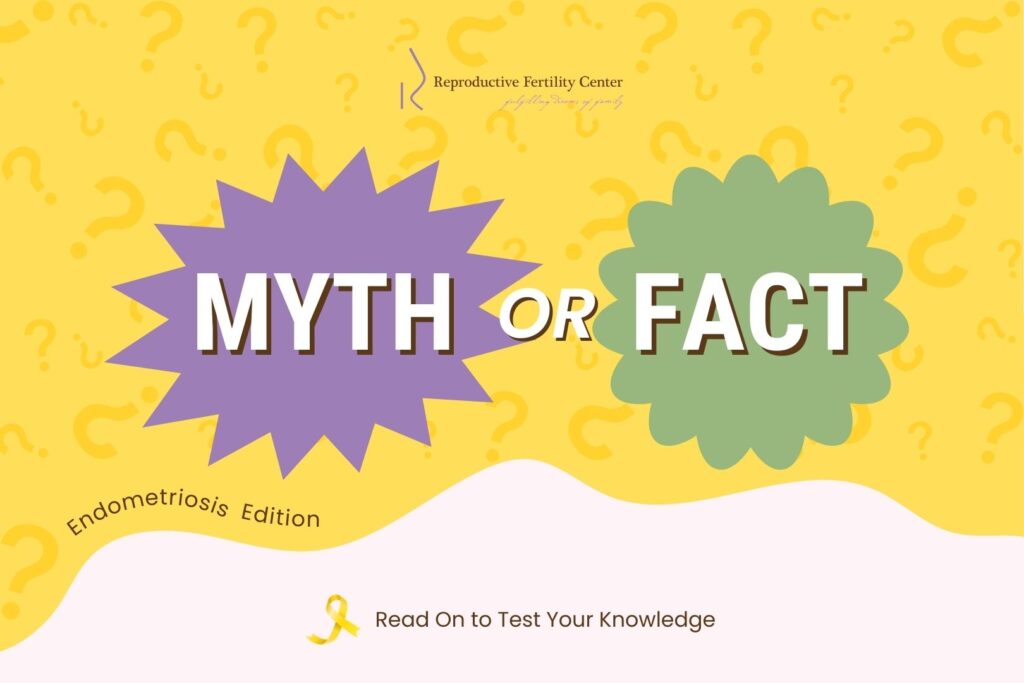Endometriosis is a condition that affects the lives of roughly 10% of women and girls worldwide. That’s about 190 million people. Despite its commonality, there is still a widespread misconception about endometriosis, leaving many individuals undiagnosed.
This Endometriosis Awareness Month, we’re going to uncover the common misconceptions of endometriosis and debunk common myths.
What is Endometriosis?
In order to debunk the misconceptions, it is important to first discuss what endometriosis exactly is.
Endometriosis is a chronic and often painful condition where tissue similar to the lining of the uterus grows outside of the uterus. This tissue, known as endometrial implants, can appear on organs like the ovaries, fallopian tubes, or the outer surface of the uterus. Each month, these implants respond to hormonal changes, shedding blood and causing inflammation, which leads to symptoms like pelvic pain, heavy menstrual bleeding, and at times, infertility.
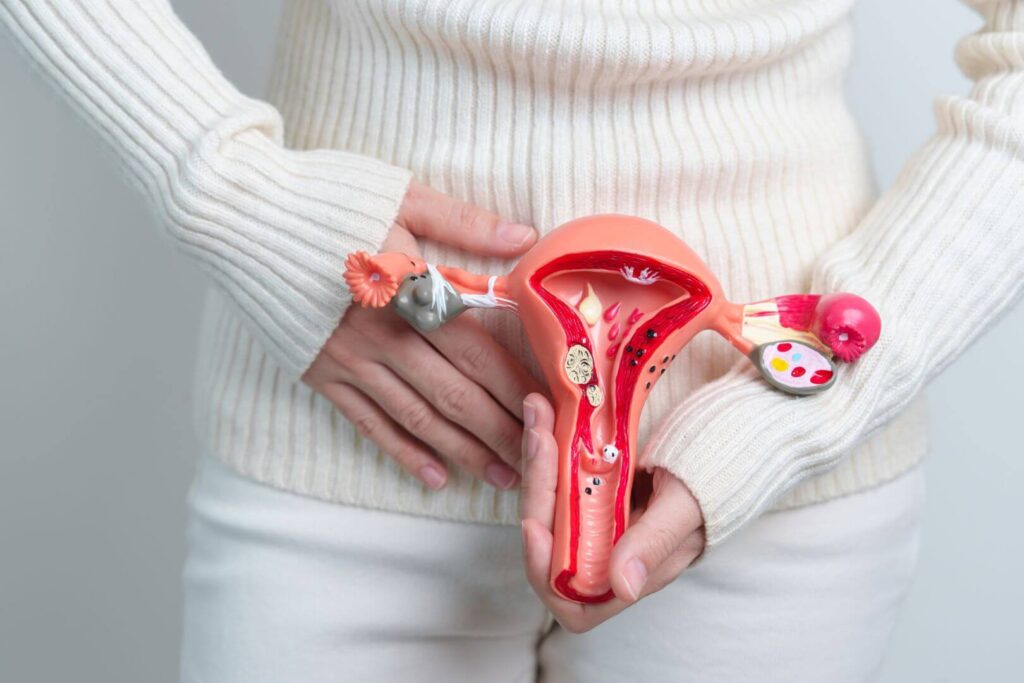
Symptoms of Endometriosis
Affecting millions of people every day, endometriosis manifests differently in each individual. Symptoms and signs of endometriosis can be debilitating, affecting daily activities.
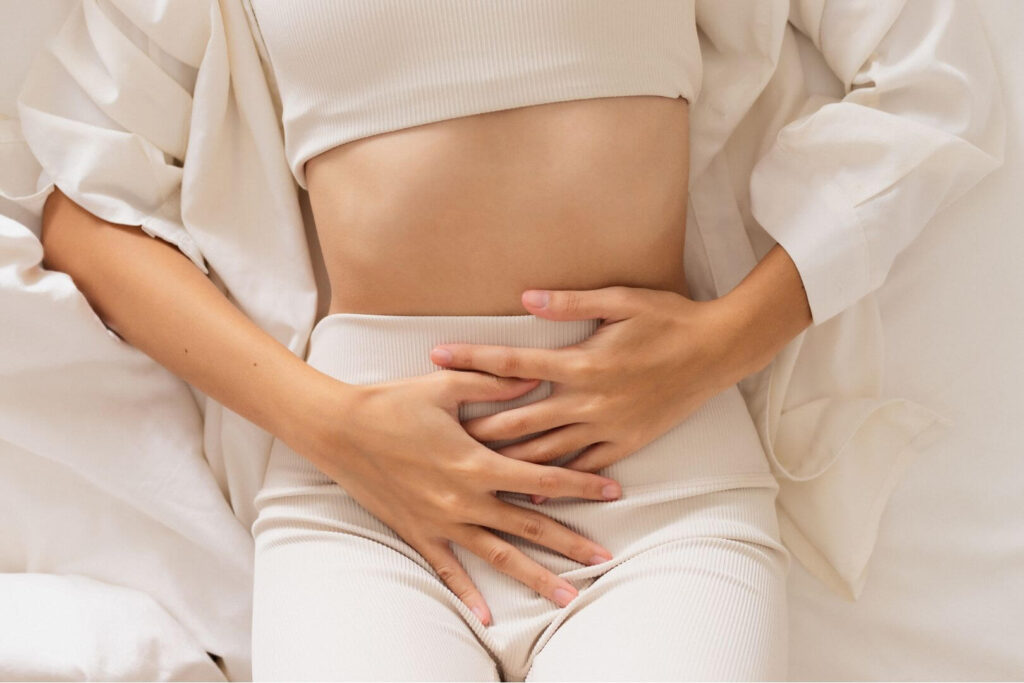
Common symptoms include:
- Pelvic pain
- Painful periods
- Pain during intercourse
- Heavy menstrual bleeding
- Pain with bowel movements or urination
- Fatigue, bloating, diarrhea, constipation, nausea
- Infertility
Now with a brief overview of endometriosis, let’s get into whether the following statements are myths or actual facts.
To learn more about endometriosis, click here.
Myth or Fact? Uncovering Endometriosis Misconceptions
Myth or Fact #1: Fertility drugs cause endometriosis.
Myth.
Fertility drugs do not cause endometriosis. However, they may intensify existing symptoms in individuals who are already diagnosed with endometriosis.
Estrogen is the hormone that causes the growth of the endometrial implants in endometriosis. Because IVF involves raising estrogen levels for egg retrievals, the higher levels of the estrogen hormone may worsen endometriosis symptoms in someone who already has the condition.
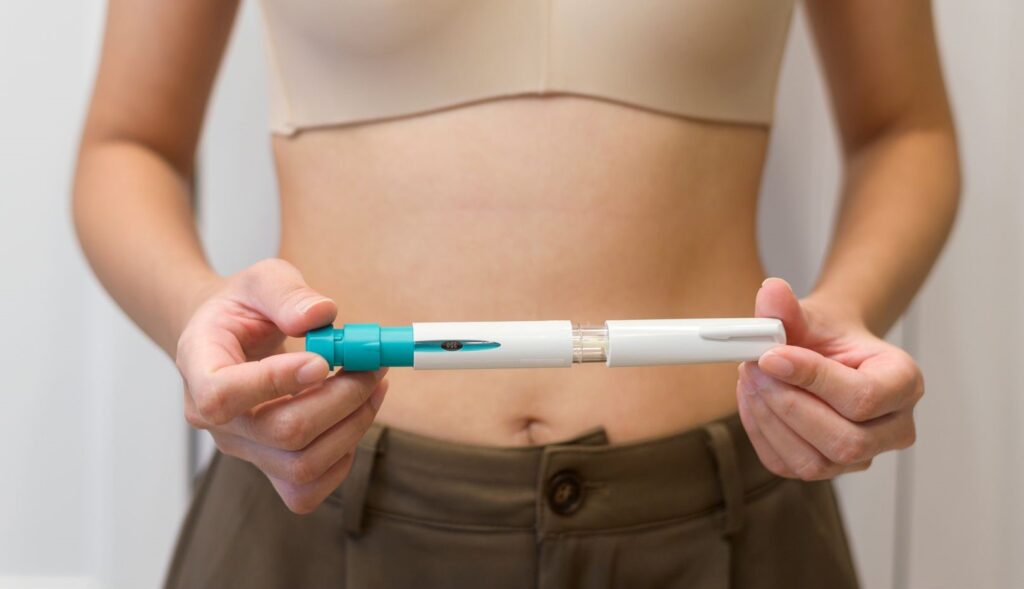
MoF #2: Endometriosis can be genetic or hereditary.
Fact.
There is evidence suggesting that endometriosis can run in families, indicating that there may be a specific genetic component needed to inherit the condition.

If a close family member has endometriosis, you may have a higher risk of developing it.
MoF #3: You can’t get pregnant with endometriosis.
Myth.
While endometriosis can impact fertility, it does not necessarily mean you cannot get pregnant.
Many individuals with endometriosis conceive naturally or with assisted reproductive technologies like intrauterine insemination (IUI) and in vitro fertilization (IVF).
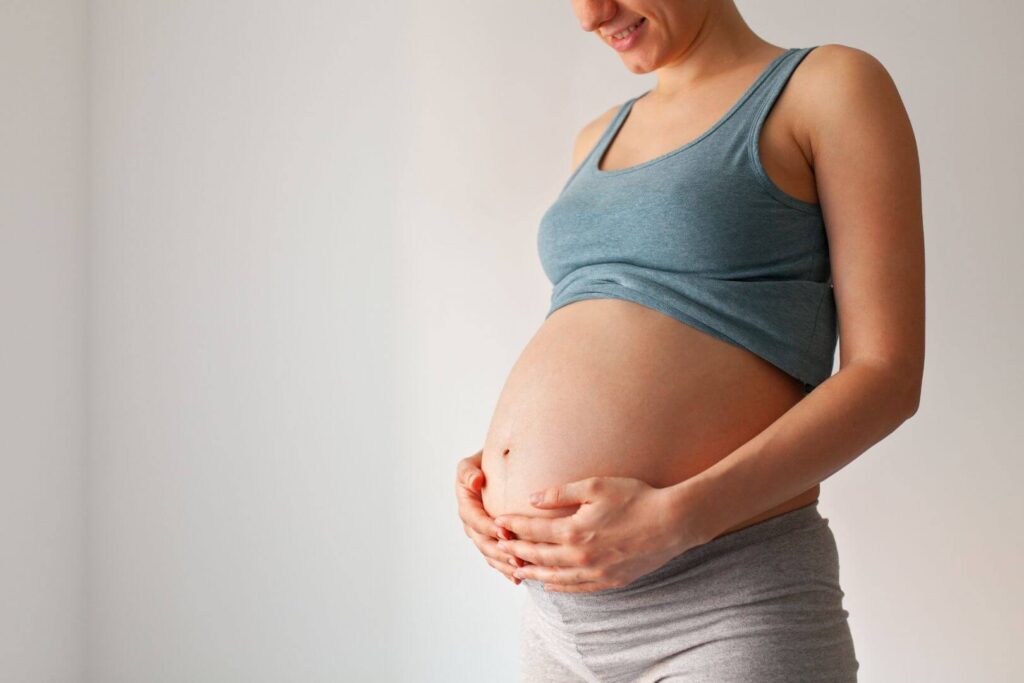
Endometriosis may cause blockages in the fallopian tubes, obstructing the pathways for eggs to reach the uterus and for sperm to fertilize the egg. Fertility treatments like IUI and IVF assist in bypassing the obstructions that the endometrial implants may present.
MoF #4: Pregnancy can cure endometriosis.
Myth.
Unfortunately, endometriosis is a chronic condition and there is no cure.
Endometriosis in pregnancy may be temporarily alleviated due to hormonal changes to the body and lack of menstruation during pregnancy, but it does not cure endometriosis.
Symptoms often return after childbirth or when hormonal levels normalize and your period returns.
MoF #5: Young women cannot get endometriosis.
Myth.
Endometriosis can affect individuals of all ages, including adolescents and young women.

This condition often goes undiagnosed in young girls and women as symptoms are typically overlooked.
Therefore, spreading awareness of endometriosis is important for those who are unaware of this condition and its symptoms.
It’s essential to recognize symptoms early and consult with a physician if endometriosis is suspected.
MoF #6: Endometriosis is difficult to diagnose.
Fact.
It can be challenging to diagnose endometriosis because of its various symptoms and similarity to other conditions like irritable bowel syndrome or pelvic inflammatory disease.
Endometriosis can also be difficult to diagnose due to the need for invasive procedures like laparoscopy for confirmation.
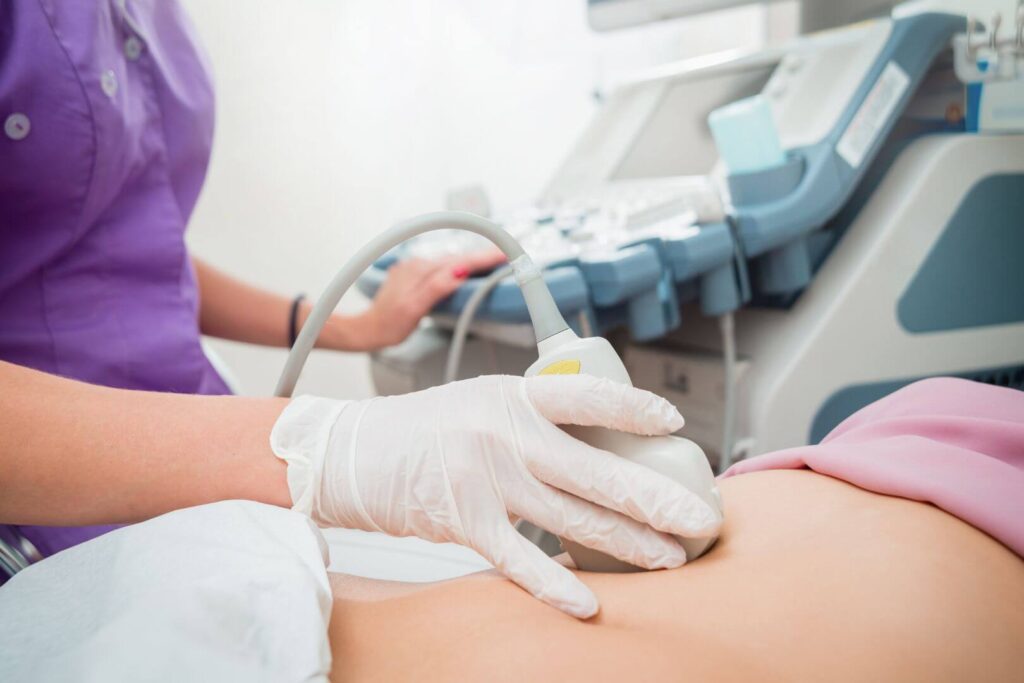
Other common methods used to diagnose endometriosis include:
- Pelvic Exam
- Ultrasound
- MRI
- Laparoscopy
Awareness of this condition and early action can lead to timely diagnosis and management of its symptoms.
Endometriosis and Fertility
While we’ve uncovered the common misconception that individuals with endometriosis cannot get pregnant, it’s important to emphasize that although pregnancy is possible, it may be challenging.
Depending on the different stages of endometriosis, fertility outcomes can vary. There are 4 stages of endometriosis, stage 4 being the most severe.
Endometriosis Stage 1 (Minimal): In this early stage, small patches of endometrial tissue are found on the pelvic organs, with minimal inflammation and no significant adhesions.
Endometriosis Stage 2 (Mild): At this stage, more endometrial tissue is present, often affecting the pelvic organs and causing some adhesions (fibrous scar tissue). Symptoms may become more noticeable, including pain during menstruation and intercourse.
Endometriosis Stage 3 (Moderate): In this stage, there are more endometrial implants and deeper adhesions, which can involve the ovaries and fallopian tubes.
Endometriosis Stage 4 (Severe): This stage includes more endometrial tissue, large cysts on the ovaries, and deep adhesions that can affect the pelvic organs.
The severity of the condition and its effect on fertility varies from person to person. The stages are based on the location and extent of the endometrial implants, scarring, and inflammation that can affect the reproductive organs and potential fertility.
IVF and Endometriosis

Living with endometriosis presents unique challenges, but with proper support and medical care, individuals can effectively manage their symptoms and still achieve their fertility goals!
With endometriosis treatments and the help of assisted reproductive technologies (ART) like in vitro fertilization (IVF), those living with endometriosis can still achieve their dreams of family.
Because endometriosis can impact fertility by causing inflammation, scarring, and blockages in the reproductive organs, it makes it harder for the sperm and egg to meet. IVF helps bypass these challenges by retrieving eggs directly from the ovaries, fertilizing them in a lab, and transferring a healthy embryo into the uterus.
While success rates can vary based on the individual and stage of endometriosis, many people with the condition have achieved successful pregnancies through IVF. Consulting a fertility specialist can help determine the best approach based on individual circumstances.
If you suspect you have endometriosis or experience symptoms, don’t hesitate to consult with a healthcare professional.
Endometriosis FAQs
Why does endometriosis cause infertility?
It can create scar tissue in the pelvis that blocks the fallopian tubes, making it difficult for sperm to reach the egg. It can also affect the ovaries, leading to irregular ovulation or fewer healthy eggs for fertilization.
Could endometriosis cause miscarriage?
What can mimic endometriosis?
Can endometriosis cause UTI symptoms?
Can pregnancy help endometriosis?
It is important to note that pregnancy does not cure endometriosis. Symptoms may return after childbirth, especially after hormone levels stabilize.
Can you have PCOS and endometriosis?
How to diagnose endometriosis without surgery?
However, these methods cannot detect implants of endometriosis that are on the surface of pelvic organs. A definitive diagnosis requires laparoscopy, which allows you to see the pelvic organs and removes cysts or cauterize implants if necessary.
Can endometriosis cause hair loss?
Does endometriosis cause acne?
Can you see endometriosis on an ultrasound?
An MRI can provide clearer imaging.
Is endometriosis genetic or hereditary?
Can endometriosis cause hip pain?
What causes endometriosis flare-ups?
Does endometriosis make you tired?
How long after endometriosis surgery can I get pregnant?
Test your Endometriosis Knowledge!
March is Endometriosis Awareness Month! How much do you know about endometriosis? Take our quiz to test your knowledge!
Get a perfect score and you’ll win a FREE New Patient Consultation (a $300 value)!
Winners will be contacted via email. Good luck!
